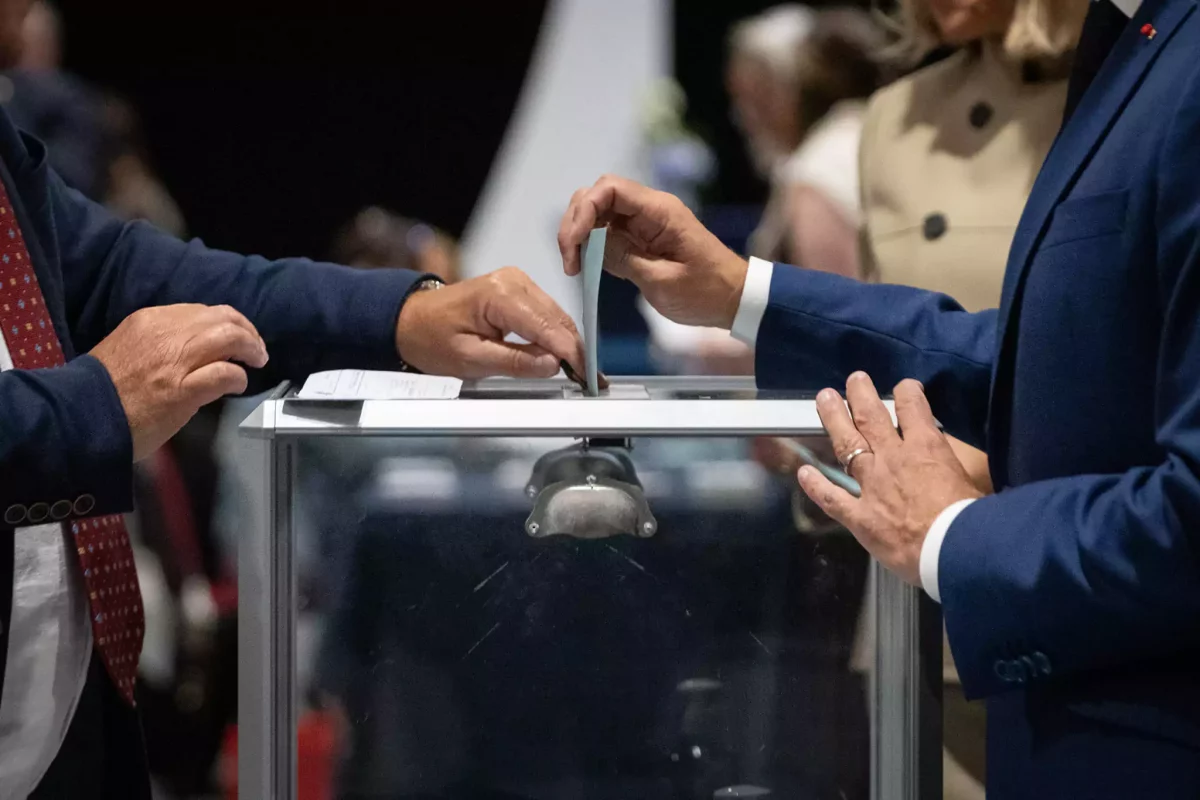The far-right National Rally, headed by Jordan Bardella but still under the influence of Marine Le Pen, has emerged as the winner of the first of round of the elections in France, leading to calls for the nation’s left and centrist parties to form an alliance to keep the party from securing a majority next Sunday.
Following French President Emmanuel Macron’s decision to dissolve the National Assembly in June, a shock move that came after an embarrassing defeat for his coalition in the EU election, snap elections have been called in France.
In the first round, which took place over the weekend, the National Rally claimed 33% of the votes, followed by the New Popular Front, a blend of left-wing parties including La France Insoumise, the Socialist Party, Les Écologistes (Greens) and the French Communist Party, who took almost 28% of the vote. In third was Macron’s centist alliance of the Renaissance party, Democratic Movement, Horizons, En commun and the Progressive Federation, with 20%. Far behind these was the right-wing Les Républicains, led by Eric Ciotti, with just 10% of the vote.
In the south of France, the far-right National Rally dominated, coming first in every district in the Alpes-Maritimes and the neighbouring Var department.
How will the second round work?
Typically, the top two candidates in a constituency qualify for the second round of voting, unless a candidate took 50% of the vote in the first round, meaning they have already won their seat as long as their portion of the votes was equivalent to 25% or more of the registered local electorate.
This is the case for Alexandra Masson in the Alpes-Maritimes’ fourth district, which includes the French towns that surround the Principality of Monaco.
Le Pen was also elected outright in her constituency of Hénin-Beaumont in the Pas-de-Calais department of Northern France.
A two-horse race is what French voters are accustomed to in the second round, but given the intensely split opinions felt across the country this time around, there will be many constituencies facing three or possibly four choices on Sunday.
Potential alliances
If the National Rally win a majority, it will be the first time since the Nazi occupation of France during WWII that the country has been under a far-right government.
Another likely outcome is that there will be no majority.
To achieve an absolute majority, the far-right party will need to secure 289 of the 577 seats.
To reduce the chances of this happening, the left-wing coalition has pledged to withdraw candidates from districts where they achieved third place or lower in the first round. Macron’s alliance has also vowed that some of its candidates in similar positions will withdraw from the race. These actions would encourage voters who are against the nationalist, ‘eurosceptic’ and anti-immigration policies of the National Rally to support en masse other candidates who are opposed to the far-right.
The next prime minister of France will come from the party – or potentially the coalition – that wins the most seats. This type of situation is known as cohabitation in France, and could weaken Macron’s ability to lead as the government could put in place policies that diverge from his plan. The President has, however, affirmed that he will not be stepping down from his role until the end of his mandate in 2027.
There appears to be some friction within the far-right, despite its success so far, with Bardella and Le Pen showing a difference of option regarding the potential outcome of the second round.
Bardella, the 28-year-old leader of the party, has said, “I will be a cohabitation prime minister, respectful of the constitution and of the office of President of the Republic, but uncompromising about the policies we will implement.”
Le Pen, meanwhile, has said that the National Rally will not form a government if the party fails to achieve a majority.
“We wish to govern,” she told the press. “It is evident that we cannot accept to go to government if we cannot act.”
Landmark voter participation
More than 67% of French voters submitted a ballot during the first round, a level of voter participation not seen in France since 1997.
Monaco Life is produced by real multi-media journalists writing original content. See more in our free newsletter, follow our Podcasts on Spotify, and check us out on Threads, Facebook, Instagram, LinkedIn and Tik Tok.
Photo via Emmanuel Macron, Facebook
